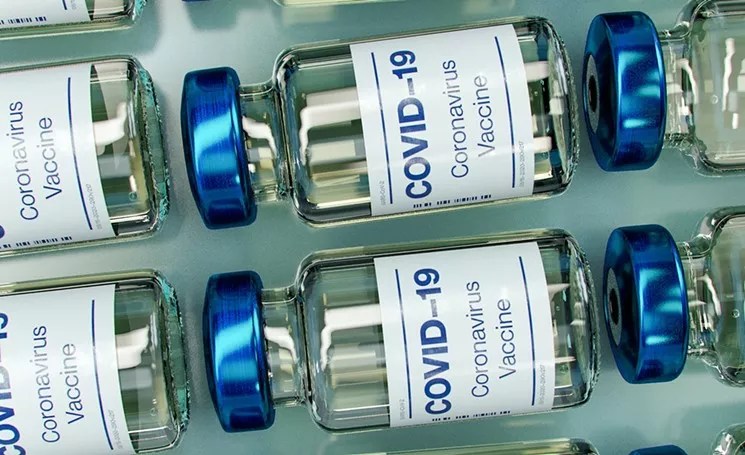
Daniels Schludi via Unsplash

Audio By Carbonatix
It’s been five years since the height of the pandemic, but COVID-19 is far from gone. Downgraded to an endemic from a pandemic, the virus surges seasonally, peaking at the tail end of every summer for the last five years straight. According to recent data from the Centers for Disease Control and Prevention (CDC), Texas is one of the 24 states with a growing rate of COVID-19 cases, and Dallas County classifies the current risk of transmission as higher than normal for fully vaccinated individuals.
Between Jan. 1 and Aug. 6 of this year, there have been 3,688 confirmed COVID-19 cases and a single fatality in Dallas County. In the same time frame in 2022, there were 147,413 confirmed cases and 837 deaths. So, even though reported cases are growing in Texas, especially, we are not facing anything close to the levels witnessed during the height of the pandemic, said Dr. Philip Huang, director of Dallas Health and Human Services.
“It’s a concern,” said Dr. Huang. “It’s not as bad as it’s been in the past, but we definitely need to be vigilant about it, and especially patients that are at higher risk; older adults, immunocompromised people and infants. We’re also monitoring all the different variants. Some of the latest variants seem to be spreading very easily… But we’re not in the same place we were at the beginning of this. We have the tools and the vaccines still offer really good protection against severe disease.”
It’s hard to keep up with the seemingly innumerable COVID-19 variants that have been identified since 2020. According to our research, the newest is a subvariant of the Omicron strain called NB.1.8.1, which was identified in January of 2025 and has been identified in the United States. The World Health Organization (WHO) has flagged it as low-risk for severe illness, but vaccinations remain the best preventative measure, and Dr. Huang says that a vaccine to protect from the newest strain should be available by mid-September, but older vaccines are also effective.
“The good news is the vaccine still is protective against serious illness,” said Dr. Huang. “The vaccine is still one of the most important things that we have to protect against this. It’s been safe, it’s been effective, and so I encourage everyone to get up to date on the vaccine.”
New variants are the regular evolution of viruses. Influenza, one of the most common and fatal viruses, adapts every year, requiring an updated vaccine to remain fully protected each flu season. Still, the WHO estimates there are one billion cases of seasonal influenza annually and between 290,000 and 650,000 deaths each year globally.
Another explainer for the predictable uptick in COVID-19 cases around the end of summer is the sticky fingers and general germ spread that accompanies the start of every school year.
“People need to stay home when they’re sick,” Huang said. “Kids need to stay home when they’re sick. If they’re ill, wear masks and then isolate until you have no fever for 24 hours. Try to get good ventilation, do things outdoors, wear masks in crowded indoor settings and test when you’ve got symptoms.”
Texas school districts do not require influenza or COVID-19 vaccinations, and vaccination requirement workarounds were strengthened in the last legislative session despite a recent measles outbreak in West Texas that officially ended Aug. 18, just in time for the start of school. Starting Sept. 1, the vaccination exemption form, which was only available upon request from the Texas Department of State Health Services, will be made downloadable online.
According to a report from the Texas Tribune, vaccination exemption form requests skyrocketed in July, totaling 17,197 and increasing 36% from 2023. In March, the CDC, operating under the Trump administration, cut more than $11 billion in COVID-19-specific grant funding to state and local public health departments.
President Donald Trump appointed Robert F. Kennedy Jr., an alleged opponent of vaccinations, as Secretary of Health and Human Services. Kennedy maintains he is not anti-vaccination and that his children are vaccinated. But this week, for the first time in 30 years, the American Academy of Pediatrics (AAP) departed from the vaccination recommendations set by the CDC. New COVID-19 vaccination recommendations set by the Federal Drug Administration, and approved by Kennedy, limit booster shots to individuals over 65 or at high risk. The AAP maintains that children over six months of age should receive the vaccine to remain protected, and recommends booster shots for children over two.
“The AAP will continue to provide recommendations for immunizations that are rooted in science and are in the best interest of the health of infants, children and adolescents,” said AAP President Susan J. Kressly in a statement. “Pediatricians know how important routine childhood immunizations are in keeping children, families and their communities healthy and thriving.”
Huang says the federal debate on vaccine efficacy and government interference in science is only hindering public health.
“It’s very concerning that we’re having, and it has been since COVID, a lot of anti-vaccination, a lot of misinformation, disinformation out there, a lot of politicization of vaccinations,” said Huang. “Any decrease in the coverage rate is bad for protection for everyone… Decreasing vaccination rates for all of the vaccine-preventable diseases for whatever cause is not a good thing.”